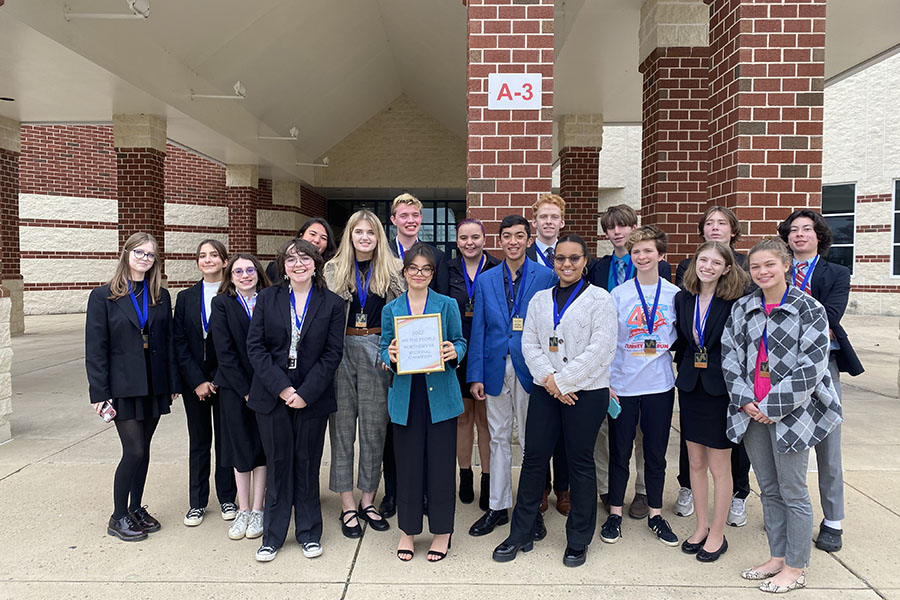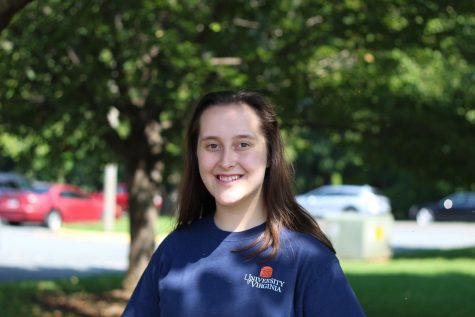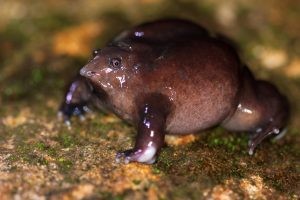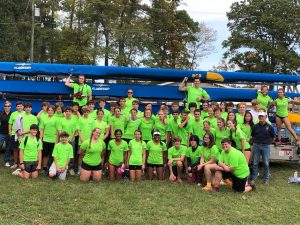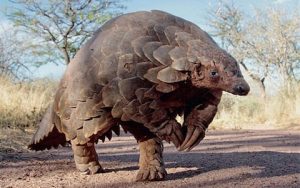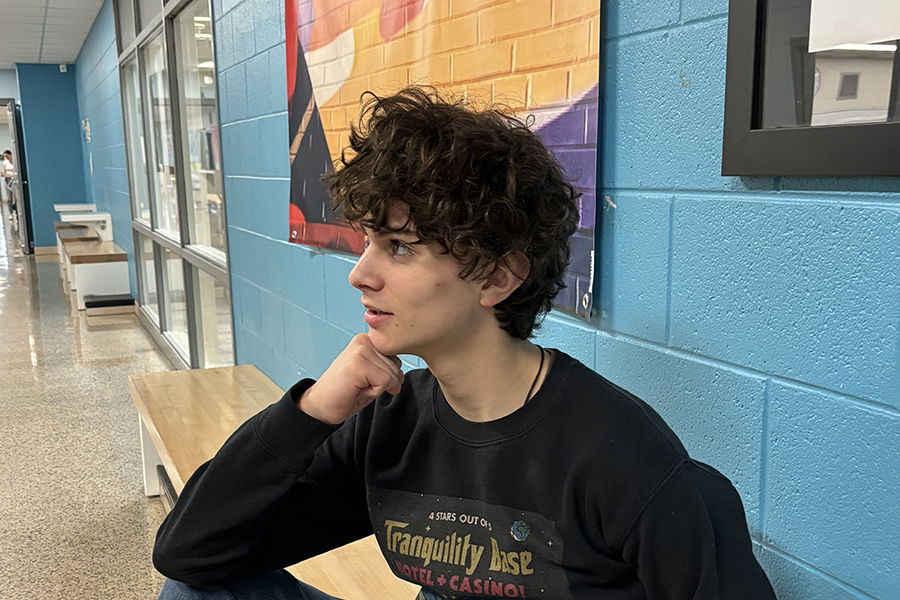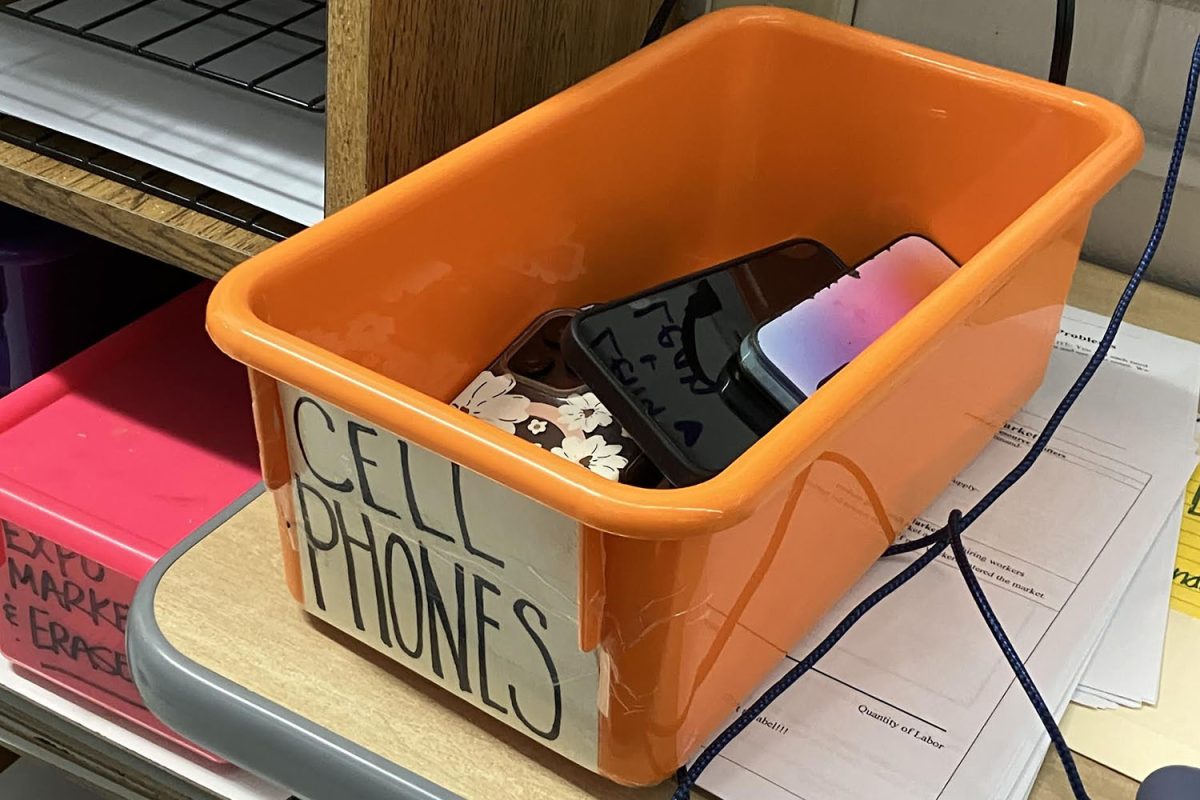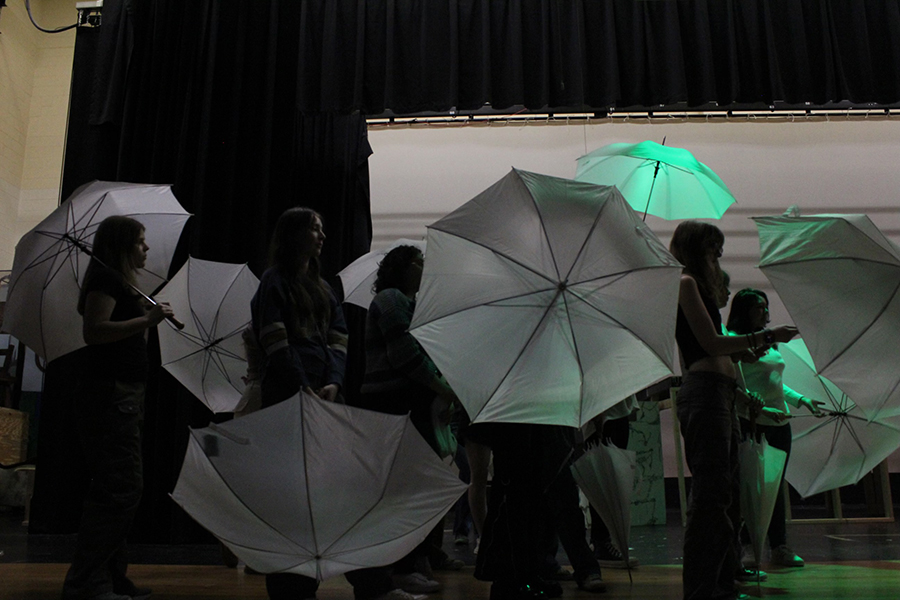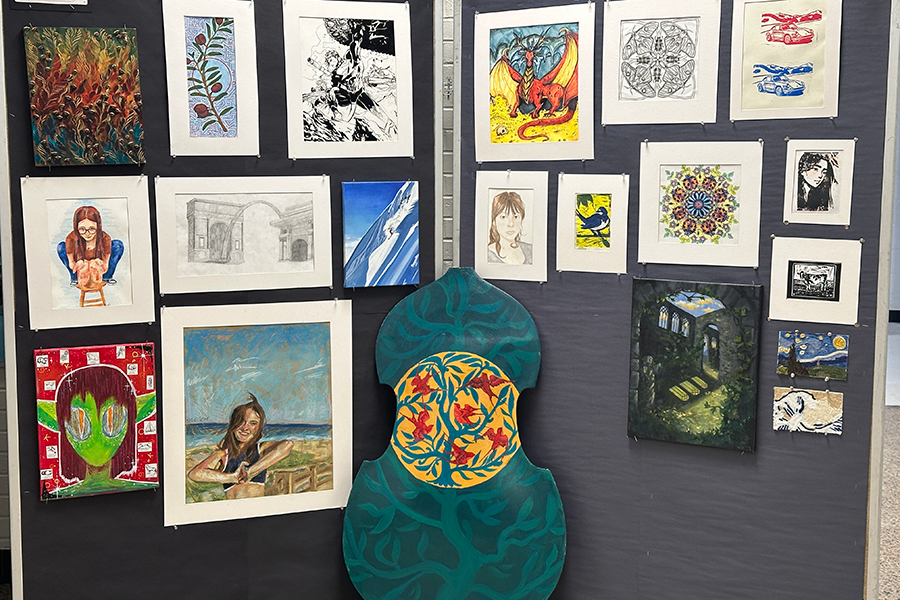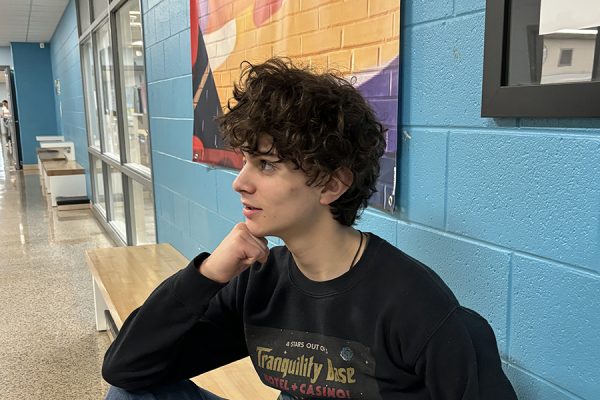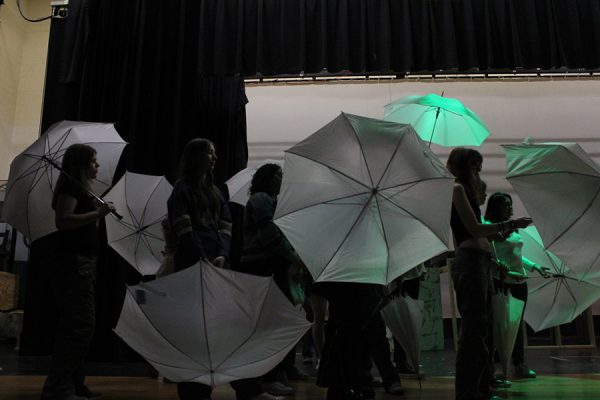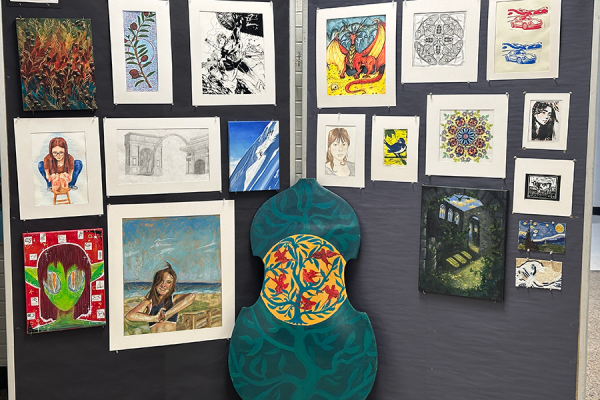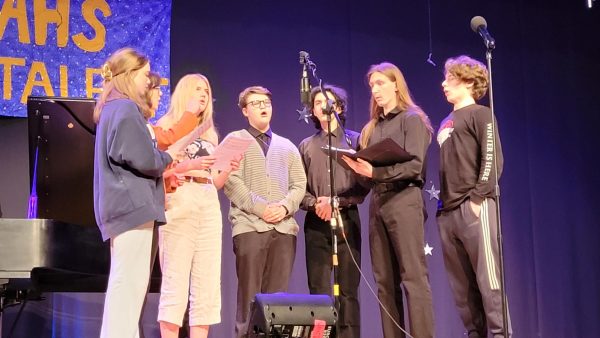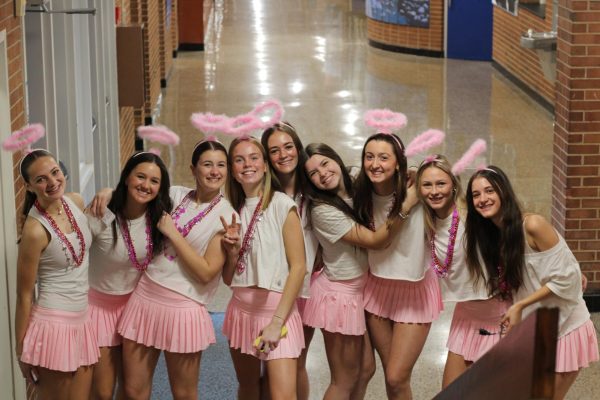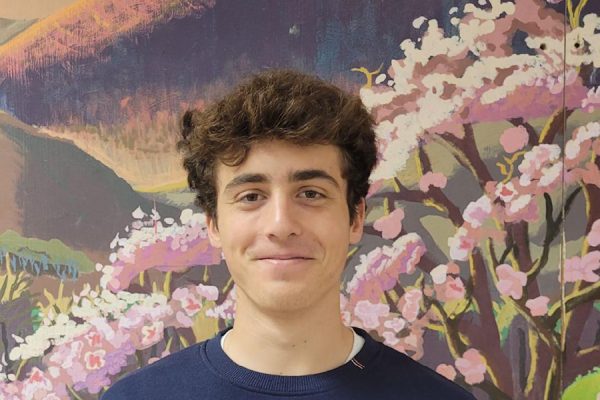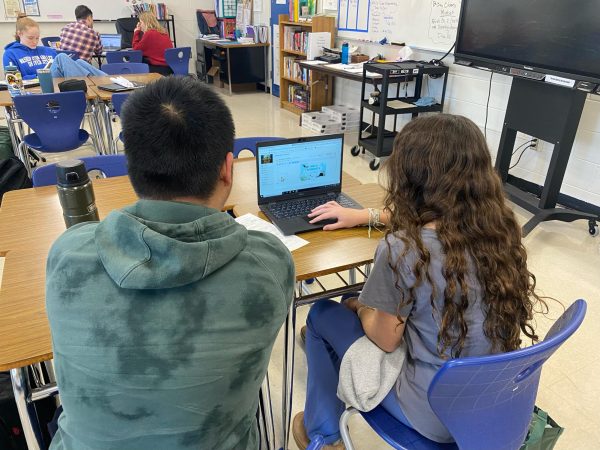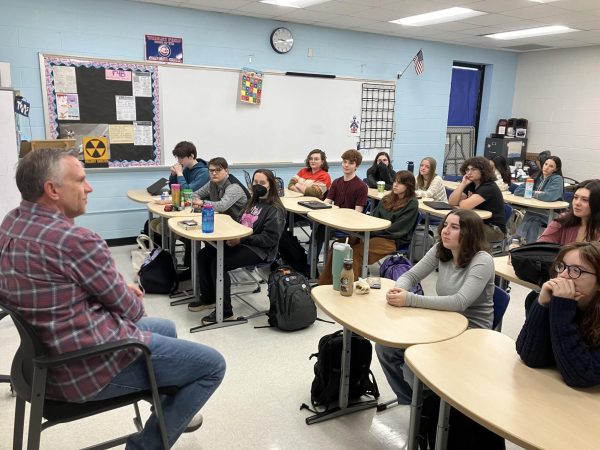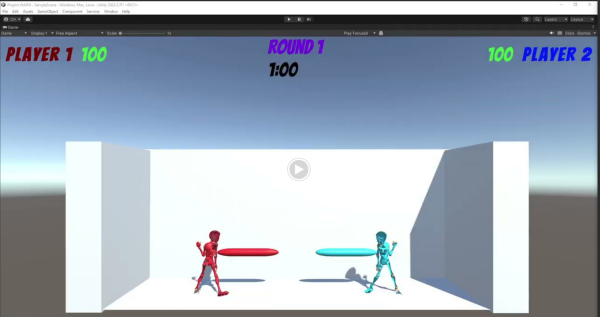We the People Club: “A duty as citizens to engage in government”
Credit: Opal Kendall
We the People placed first at regionals and fourth in states.
March 3, 2023
“We the People of the United States, in order to form a more perfect union-...” Whoa, whoa, whoa- hold up. Play back the tape. We’re not talking about that “We the People,” although Western’s We the People club members are very familiar with these words. What is We the People, you may ask? Members of the club have a difficult time explaining it themselves. Upon asking numerous members what exactly We the People is, the general consensus is along the lines of “It’s difficult to explain.” CivicEd, the organization that runs the program nationally, says on its website that We the People “promotes civil competence and responsibility among the nation’s upper elementary and secondary students,” but that doesn’t seem to capture We the People on a more personal level.
Eli Hughes, a junior and co-vice president of the club, is in their fourth year of We the People. They may have the answer as to what We the People truly is. Fundamentally, “We the People is a constitutional literacy club that culminates in a series of competitive mock Congressional trials. We spend time studying, discussing, and writing about American constitutional democracy, learning about topics like Enlightenment-era philosophers, the Philadelphia Convention, the Bill of Rights, and American political structures. Then, we use that knowledge to write a speech in response to prompts we are given by the competition organizers.”
According to Lucy Shadel, a sophomore participating in her third year of We the People, they spend their meetings answering these prompts and preparing for follow-up questions from the panel of judges. “For instance, this year my team is talking about the purpose of our government and its ties to classical republicanism and natural rights philosophy,” She says. “At the beginning of the year, my unit researches policies and philosophers that reflect the topic. Once we’ve developed our opinions and written our responses, we spend the rest of our time prepping for follow-ups and learning examples.”
We the People participates in competitions regarding these topics, which require a lot of effort and work. “There are We the People competitions every year, but to qualify for them a team must first go through a regional and state competition,” Shadel explains. “…The competitions consist of a prewritten response answering our unit questions, followed by questions from the panel of judges at our hearing.” Afterward, the judges announce the winners and distribute medals.
Five years in a row Western Albemarle High School’s We the People has won first place metals in the regional competitions. This year, they battled their way to fourth place on the state level, the best they’ve ever done.
It is difficult for Western to even place on a state level because at other schools We the People is a rostered class, typically only for seniors, while here it was founded by students who had competed at the middle school level as a club, for all grades, meaning that the team has greater limitations on preparation time compared to other teams in the state. Ms. Koury, the coach and sponsor of both the Western and Henley, believes that “the fact that our Western club team is student-led and placed fourth this year when competing against schools that consistently place in the top [ten] nationally, says a lot about our students.”
However, We the People’s impact transcends competition and metals. To many, it is a great avenue to learning more about politics, philosophy, the legal system, and the US government. As for community impact, Shadel believes that “We the People brings people together and gets people excited about government, which is important because it gives us a unique opportunity to learn about politics on both sides of the aisle” and
Hughes goes one step further, attesting that the impact goes beyond the Western community. “We the People is so important because civic competency is important. All of us here at WAHS are close to–or already can be–engaging in our democracy by voting, and if we’re going to have a say in our government, it’s crucial that we have a solid understanding of it and its history… We have a duty as citizens to engage in government because it belongs to ‘we the people.’”
So what is the We the People club here at WAHS? They certainly do a lot, and yes, it is in fact, difficult to explain. But, according to the same club members who find it difficult to explain, it’s also the next step in getting students talking about politics, philosophy, and democracy, preparing them to have a say in our government and making sure that ‘We the People’ means all people.



